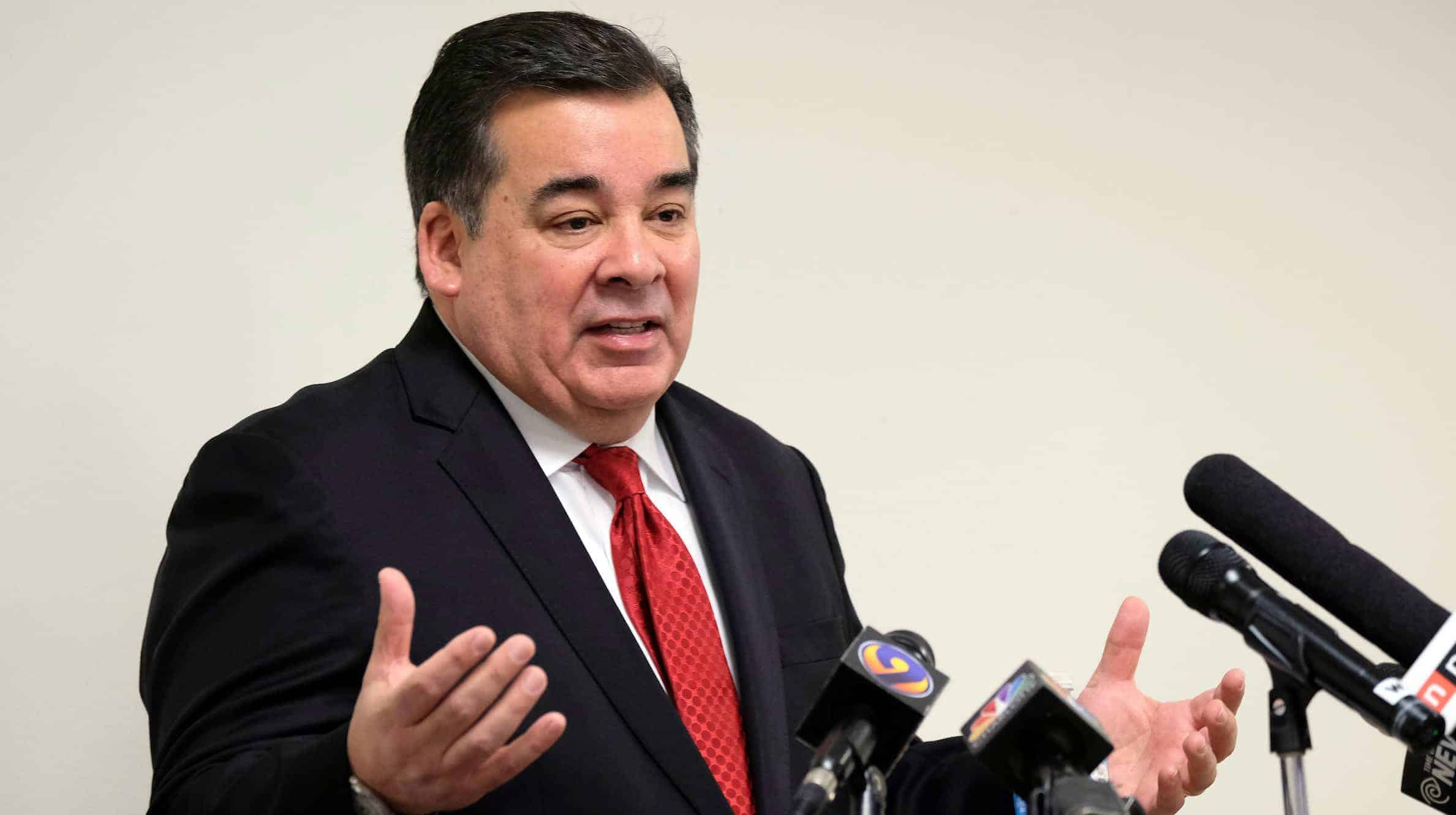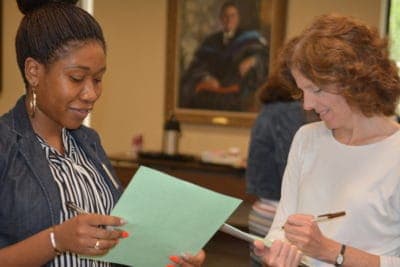The new CMS superintendent is a departure from his predecessors. Is that why he will succeed?
After applause from a handful of people in the gallery of the beige meeting chamber, the county’s school board chair, Mary McCray, told Wilcox he could make a few remarks. “You have about 90 seconds if you want to say something,” she said.
“I don’t know I can say anything in 90 seconds except for I don’t know if you have enough media here,” Wilcox joked.
The 61-year-old superintendent came to Charlotte from Hagerstown, Maryland, and enters CMS at a pivotal moment for the state’s second-largest school district. Earlier this year, the school board ended a protracted, emotional debate about student assignment boundaries by approving a plan that expands magnet offerings and new programming — but neither dramatically reduces the clusters of poverty and racial isolation on some campuses, nor buses entire neighborhoods of kids clear across the county.
In November, voters will have a say on a nearly $1 billion facilities bond, which is only half of the school system’s capital needs over the next decade. And parents lean on years of mistrust of CMS for everything from controversial school closures in black neighborhoods to suburban threats to split off and form a new district.
In an unusual move, Wilcox spent about three months — on a $1,077-a-day, taxpayer-funded salary — shadowing outgoing Superintendent Ann Clark, who was winding down a 30-plus-year career with CMS. During a press conference after his swearing-in ceremony, Wilcox said the transition period helped him “learn the personality of the system.”
I asked him to be more specific, to describe the attributes of CMS’ personality as he understood it.
“We all have that one friend who is terrific but who everyone thinks of as just ‘Old Bill,’” Wilcox began. “People kind of take him for granted.”
He went on to say that this friend sometimes takes on more than he can handle and sometimes has a hard time saying no to his friends. It was a refreshing moment that offered a glimpse into Wilcox’s personality and, notably, how it differs from his predecessors’ leadership styles.
“We gotta get that old friend to step up,” he said, “and be a little prouder.”
Wilcox fielded questions from the press for about half an hour; some of the questions were predictable, as were his answers.
“What would you want to say to parents?” one TV reporter asked.
“What I hope they’ll see,” Wilcox responded, “is that I have an open ear.”
Admittedly, it is easy to evaluate Wilcox in an overly positive light — much like one would a new love interest when compared to an ex. But sprinkled throughout his exchange with the media were indications of Wilcox’s self-deprecating, quirky approach to life.
Much like his immediate predecessor, Wilcox does not seem to be interested in the spotlight, and he certainly does not seem to relish it in the way past superintendents Heath Morrison and Peter Gorman did.
Morrison struck a profile as a brash, confident leader with relentless — almost frenetic — energy. He did not shy away from conflict and, in some dealings with county commissioners, state legislators, and parents, seemed to invite it.
Clark was more understated, but people here, including some members of the school board, viewed her long tenure with CMS as baggage. Wilcox does not have Clark’s deep knowledge of the district; he still talks in general terms about policy.
Perhaps the biggest departure from his predecessors, though, is his willingness to telegraph what he is thinking. Both Clark and Morrison were guarded, often leaning on carefully scripted talking points or evading questions altogether. (As Clark wound down her tenure, she grew more comfortable saying what the district should do moving forward; at a panel discussion a couple weeks before her last day, she chastised parents who talk about “those kids.”)
Asked about the district’s budget gap — between the $27 million in additional funds CMS asked for and the $15 million in new money the Board of County Commissioners approved — Wilcox did not make the case for extra funding. “It’s a matter of controlling our appetite a bit,” he said. “We may not be able to move forward as fast as we like.”
He also acknowledged the trust issues many parents have with CMS. “The system itself has shut out people,” Wilcox said. He didn’t offer solutions to the district’s challenges, and didn’t cast himself as a savior. “I think if there was a silver bullet a superintendent could bring to a community, it would’ve been brought,” he said.
A couple weeks ago, I asked a CMS parent and longtime public education advocate about Wilcox and about what she thought of his first few weeks on the job. She had not formed much of an opinion about him, she said, and had told other parents she was going to reserve judgement for a while.
“If I learned anything these last couple of years, I guess it’s not to get my hopes up,” she said. After a beat she added, “And don’t get too comfortable; he might be gone before we know it.”



